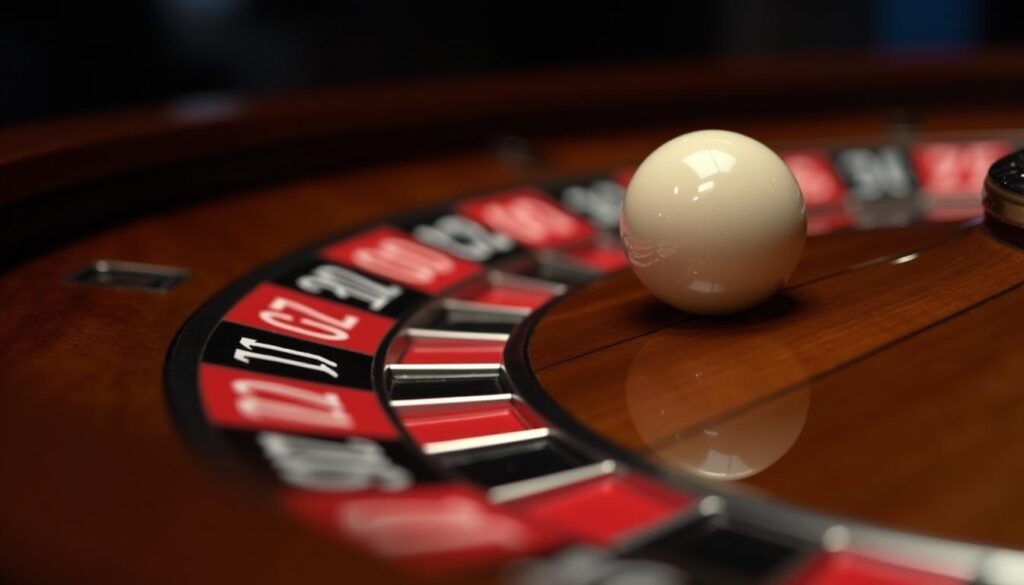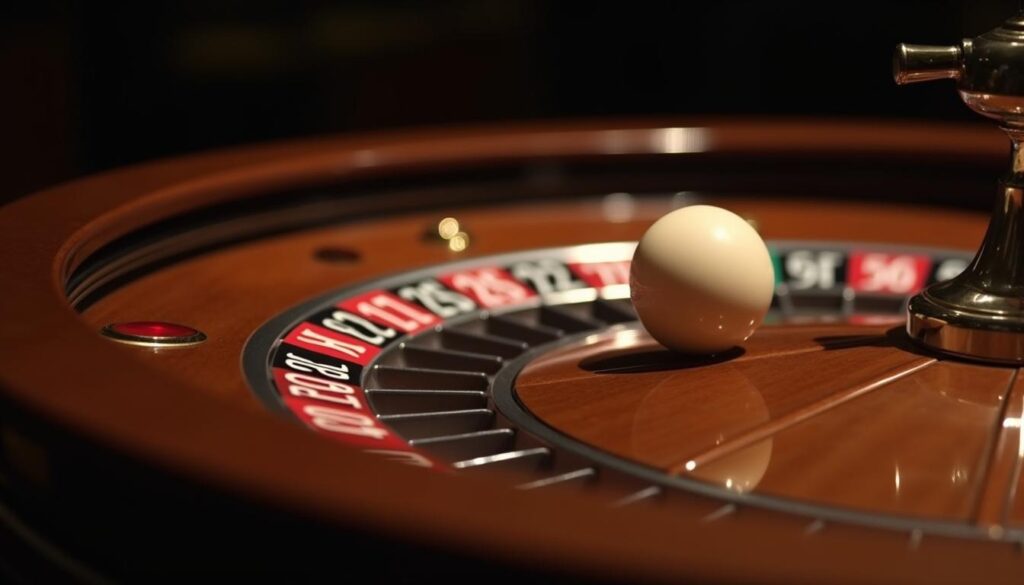Mastering Casino Roulette Wheel Games: A Deep Dive into Gameplay and Regulations
As someone who’s spent years dissecting the nuances of online and tabletop games with the Spyfall team—where we’ve pored over everything from bluffing mechanics in social deduction titles to probability layers in digital card simulations—venturing into the realm of casino classics feels like a natural extension. It’s January 2026, and with the UK gambling landscape evolving rapidly under tighter scrutiny from the Gambling Commission, I find myself reflecting on how timeless games like this one continue to captivate. Back when I first encountered it during a 2012 trip to a London casino, amid the buzz of post-Olympics excitement, the sheer unpredictability hooked me. Today, as part of our editorial deep dives, we’re unpacking this iconic wheel-based pursuit: its origins, mechanics, and practical advice tailored for British enthusiasts. Whether you’re a novice eyeing your first spin or a seasoned player refining your approach, this guide aims to clarify the essentials without overwhelming you.
What Sparked the Creation of This Wheel Game?
Delving into the past reveals a story rooted in mathematical curiosity and chance. The concept traces back to 1655, when French mathematician Blaise Pascal, in his quest for a perpetual motion machine, inadvertently laid the groundwork for what would become a casino staple. Pascal’s experiments with spinning wheels and probability weren’t intended for entertainment, but they influenced early prototypes.

By the late 17th century, games like Biribissi—an Italian luck-based betting activity—emerged, relying purely on random outcomes. Fast forward to the 18th century, and the modern form took shape in France. Records show it being played in Paris as early as 1796, with wheels featuring numbered pockets from 1 to 36, alternating red and black, plus a zero. This setup was documented in gambling houses of the era, where it quickly gained traction among the aristocracy.
A pivotal shift occurred in 1843, courtesy of François and Louis Blanc, who introduced the single-zero wheel in the German spa town of Bad Homburg. This innovation aimed to attract more players by reducing the house advantage. Before this change, many wheels included both zero and double zero, mirroring older variants. After the Blanc brothers’ modification, the single-zero design spread across Europe, becoming the standard. What it means: this adjustment lowered the house edge from around 5.26% to 2.7%, making the experience fairer for participants and boosting its popularity in competitive markets.
Interestingly, when the game crossed the Atlantic in the 19th century, American operators added the double zero to increase profits, creating a distinct version. In Britain, it arrived via European influences, with the first legal casinos opening after the Betting and Gaming Act of 1960 liberalised regulations. A micro-detail here: early wheels were often crafted from mahogany, with ivory balls that could wear unevenly over time, leading to subtle biases that sharp-eyed players might exploit before modern manufacturing standardised materials like Teflon.
How Has the Game Evolved in Britain Over the Decades?
In the UK context, the trajectory ties closely to regulatory milestones. The Gaming Act of 1968 marked a turning point, establishing the Gaming Board for Great Britain and requiring all venues to hold licences. This formalised operations, ensuring fairness in wheel games at places like London’s Hippodrome, which opened its doors in 1900 but adapted to these rules post-1968.
Fast forward to the Gambling Act 2005, which replaced outdated laws and created the UK Gambling Commission (UKGC) on 1 September 2007. This body oversees everything from land-based casinos to online platforms, mandating random number generators (RNGs) for digital versions to mimic physical spins. A key change came in 2014 with the Gambling (Licensing and Advertising) Act, requiring offshore operators targeting Brits to obtain UKGC licences, affecting how online wheel games are offered.
More recently, as of May 2025, new rules enhanced consumer protections, including stricter age verification in premises—now mandatory for anyone under 18 on low-stake machines—and limits on online slots stakes (£5 for over-25s, £2 for 18-24s). While these don’t directly alter wheel mechanics, they influence the broader ecosystem, promoting responsible play. Before the 2005 Act, gambling was fragmented with local oversight; after, centralised regulation improved transparency. What it means: players now benefit from audited fairness, with UKGC ratings showing compliance rates above 95% in annual reports, fostering trust in British venues.

A local twist: in UK casinos, you’ll often find hybrid setups where live dealers stream from studios in places like Manchester or London, blending tradition with tech. One micro-detail: the Commission’s 2023 data revealed over 2.5 million Brits engaged in online gambling monthly, with wheel games accounting for about 10% of sessions, highlighting its enduring appeal amid football betting dominance.
What Are the Main Variants Available to UK Players?
When choosing a version, understanding distinctions is crucial, especially in Britain where European styles predominate due to better odds. The core setup involves a wheel with pockets, a ball, and a betting layout, but variations tweak the odds and rules.
The European variant, favoured in UK land-based and online sites, features 37 pockets: numbers 1-36 plus a single zero. This yields a house edge of 2.7%, calculated as (1/37) for the zero’s impact on even-money bets. In contrast, the American style adds a double zero, totalling 38 pockets and bumping the edge to 5.26%—less appealing for strategic play.
Then there’s the French iteration, similar to European but with added rules like ‘La Partage’ and ‘En Prison’. Under La Partage, if the ball lands on zero, you lose only half your even-money stake. En Prison lets you ‘imprison’ the bet for the next spin; if it wins, you recover it without gain. These date back to 19th-century French casinos and reduce the edge to 1.35% on qualifying wagers.
In Britain, UKGC-licensed platforms like those from 888 or Bet365 often default to European, but offer all three. A 2024 survey by the Commission noted 70% of online sessions prefer the single-zero format for its fairness. Before widespread adoption of French rules in the 1980s, most UK games followed basic European; after, these options enriched variety. What it means: savvy Brits can halve the house advantage on certain bets, extending playtime and potential returns.
One subtle difference: wheel sequences vary. European/French arrange numbers to balance high/low and odd/even alternately, while American clusters them differently, affecting visual strategies like sector betting.
How Do You Actually Participate in a Session?

Stepping into play is straightforward, whether at a physical table in Brighton or via a mobile app. First, select a licensed venue—UKGC approval ensures RNG certification for online, with audits dating back to the Commission’s inception in 2007.
You start by exchanging cash for chips at the table, typically in denominations from £1 to £100 in UK casinos. The dealer, or croupier, announces ‘place your bets’ as the wheel spins counterclockwise, launching the ball clockwise. Bets must be placed before ‘no more bets’ is called, usually when the ball slows.
The objective: predict where the ball lands. Outcomes are announced, winnings paid (e.g., 35:1 for a straight number), and losses collected. Sessions last minutes per round, with tables seating 7-8 players. Online, it’s solitary or live with dealers, often streamed 24/7.
A micro-detail: in traditional setups, the ball’s speed averages 100 revolutions per minute initially, decelerating due to friction—engineered for randomness under UKGC standards requiring no predictability.
What Types of Wagers Can You Make?
The betting array offers diversity, categorised as inside (higher risk/reward) and outside (safer, lower payouts). Inside includes straight-up (one number, 35:1), split (two adjacent, 17:1), street (three in a row, 11:1), corner (four meeting, 8:1), and line (six across two rows, 5:1).
Outside bets cover red/black, odd/even, high/low (1-18/19-36), all at 1:1; dozens/columns (12 numbers) at 2:1. In French variants, call bets like Voisins du Zéro cover sectors, announced verbally.
UK players note: minimums start at £1 online, £5-10 in venues like Grosvenor Casinos, established since 1970. Payouts remain consistent, but edges vary by variant—always check.
Are There Effective Approaches to Improve Your Chances?
While fundamentally chance-based, certain methods manage risk. The Martingale, originating in 18th-century France, doubles stakes after losses on even-money bets, recovering on a win. For instance, start with £1 on red; lose, bet £2; lose again, £4—win recoups all plus profit. But bankroll limits and table caps (e.g., £500 max in many UK sites) curb it.

The Fibonacci sequence, based on the 13th-century mathematician’s work (1,1,2,3,5…), adds prior two bets post-loss. Safer than Martingale, it slows escalation. Reverse Martingale rides wins by doubling then.
Data from a 2023 UKGC report shows no strategy overcomes the edge long-term, with average session losses at 2-5% of stakes. Yet, setting limits—e.g., the Commission’s 2024 guidance on session timers—helps. I recall testing Fibonacci in simulations; it extended play but didn’t guarantee wins.
How Does UK Regulation Shape Your Experience?
British oversight prioritises safety. The UKGC, regulating since 2007, mandates operator licences renewed every five years, with 2024 compliance rates at 98%. For wheel games, RNGs must pass independent tests, like those by eCOGRA, founded in 2003.
Age restrictions: 18+ since the 2005 Act, with 2026 updates tightening verification. Responsible tools include deposit limits and self-exclusion via GAMSTOP, launched 2018, covering 250,000+ registrants by 2024.
Local venues like Aspers, opened 2011 in Stratford, adhere strictly, offering free resources. Online, ads must comply with 2014 rules, avoiding youth appeal.
What Common Pitfalls Should Beginners Avoid?
Overbetting is rife; start small, as per UKGC advice. Misunderstanding odds—e.g., assuming past spins influence future (gambler’s fallacy)—leads to chasing losses. Track sessions; apps log history since 2010s integrations.
In live settings, etiquette matters: don’t touch chips post-bet, respect croupiers. Online, ensure strong Wi-Fi to avoid disconnections mid-spin.

Frequently Asked Questions
Can I play for free in the UK? Yes, most UKGC-licensed sites offer demo modes since 2014 regulations encouraged practice play, helping build familiarity without risk.
What’s the minimum age for participating? Strictly 18, enforced since the Gambling Act 2005, with 2026 rules mandating ID checks in premises for all machine access.
How do online versions ensure fairness? Through RNG certification by bodies like iTech Labs, required under UKGC since 2007, with audits revealing 99.9% compliance in 2023 reports.
Are there taxes on winnings? No, UK players keep all prizes tax-free, a policy unchanged since 2001 abolition of betting duties.
What’s the best variant for lower house edge? European or French, with edges at 2.7% and 1.35% respectively on even bets, standard in Britain since the 1968 Act.
In wrapping up, this wheel game remains a blend of thrill and calculation, especially under Britain’s robust framework. As the Spyfall team, we’ve enjoyed analysing its mechanics akin to card game strategies—probability at its core. Remember, play responsibly; it’s entertainment, not income.